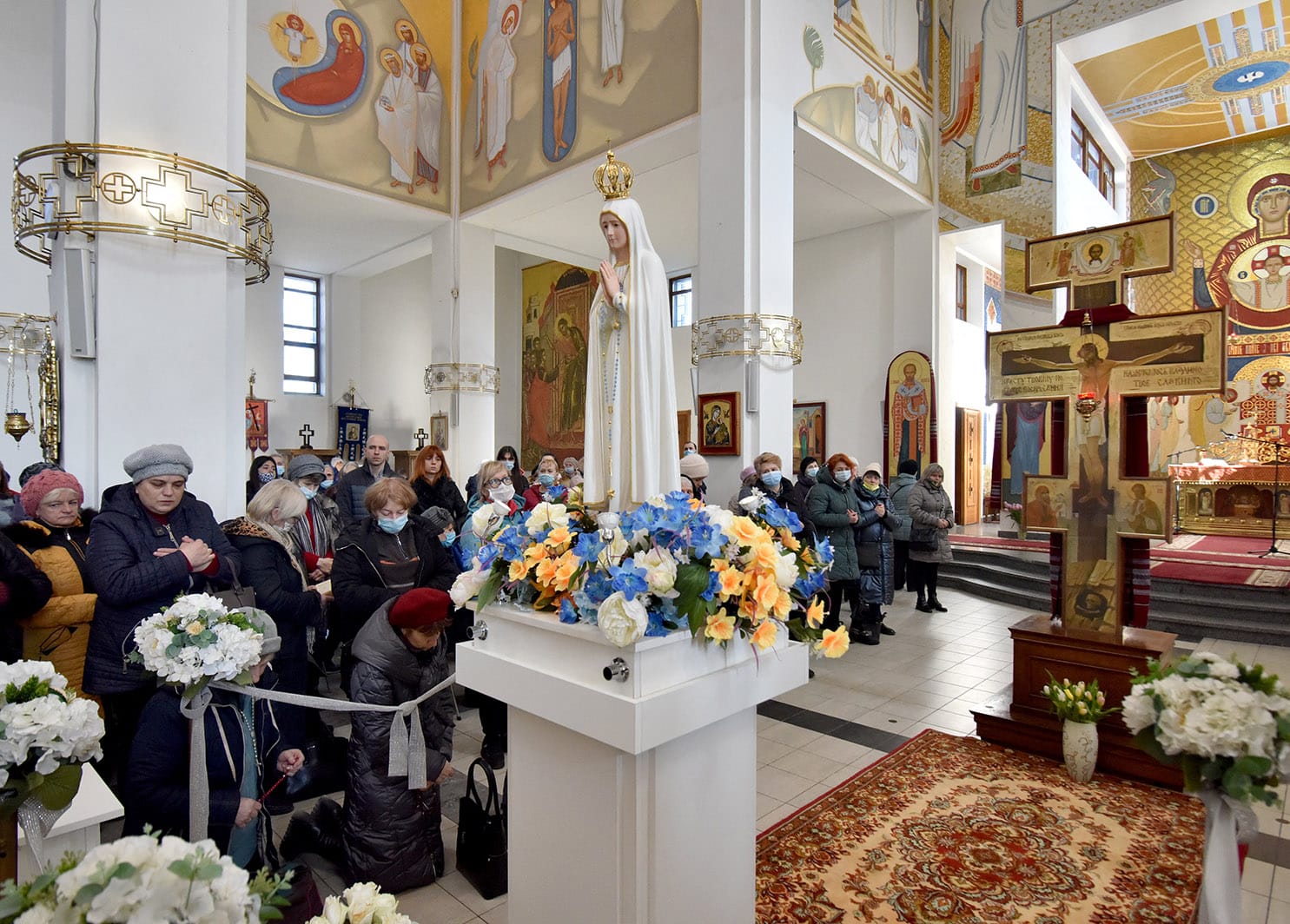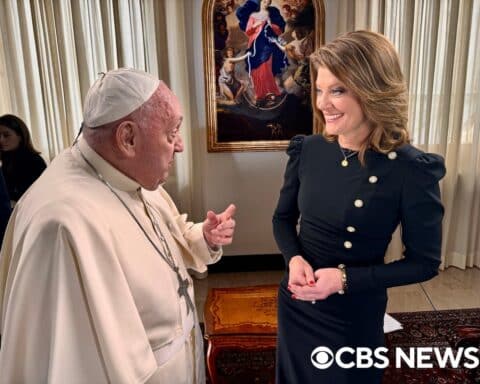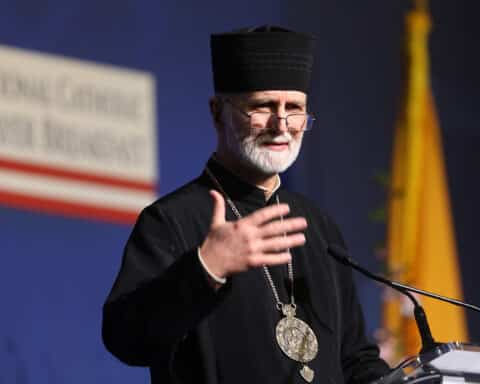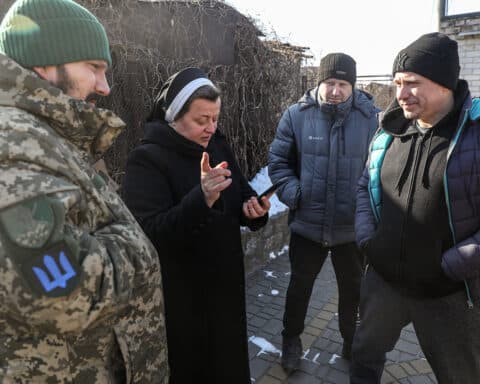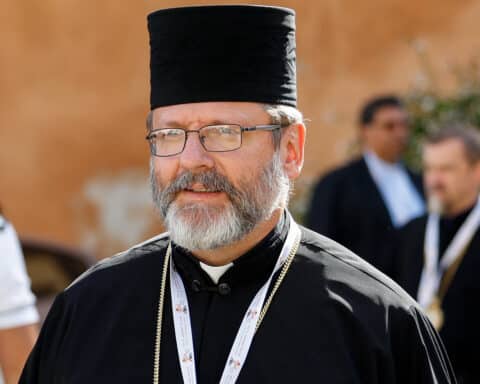Russia’s war in Ukraine has been called by one scholar “the first religious war of the 21st century.” While geopolitical factors, including Russia’s perceived security concerns, contributed to the outbreak of war, this appellation says something true about the high stakes of the conflict, the role of religious rhetoric in it, and the duty of believers to work toward a peaceful resolution. Unbeknownst to many, religion has played a significant role in the war since Russia invaded Ukraine on Feb. 24, 2022. As the world observes the second anniversary of the war, the religious aspects of the conflict demand consideration.
Religious divisions have played a central role in the dynamics of warfare and each side’s strategic considerations for bolstering political influence. As the conflict continues, the entanglement of religious engagement continues to deepen. In Russia, the pronouncements of the head of the Russian Orthodox Church, Patriarch Kirill, have intensified the military ethos of Russian society, echoing the sentiments of President Putin’s close associates and security forces.
Preaching war
The patriarch has not only defended the Russian president’s action on the global stage but directly preached the war effort, using extremist rhetoric. “If someone, driven by a sense of duty, the need to fulfill an oath, remains true to his calling and dies in the line of military duty, then he undoubtedly commits an act that is tantamount to a sacrifice,” Kirill said in a wartime sermon. “He sacrifices himself for others,” the patriarch preached. “And therefore we believe that this sacrifice washes away all the sins that a person has committed.”
Since the invasion, roughly 400 parishes of the Orthodox Church of Ukraine, previously aligned with Kirill, have severed their connections with the Russian Orthodox Church because of the patriarch’s stance on the conflict.
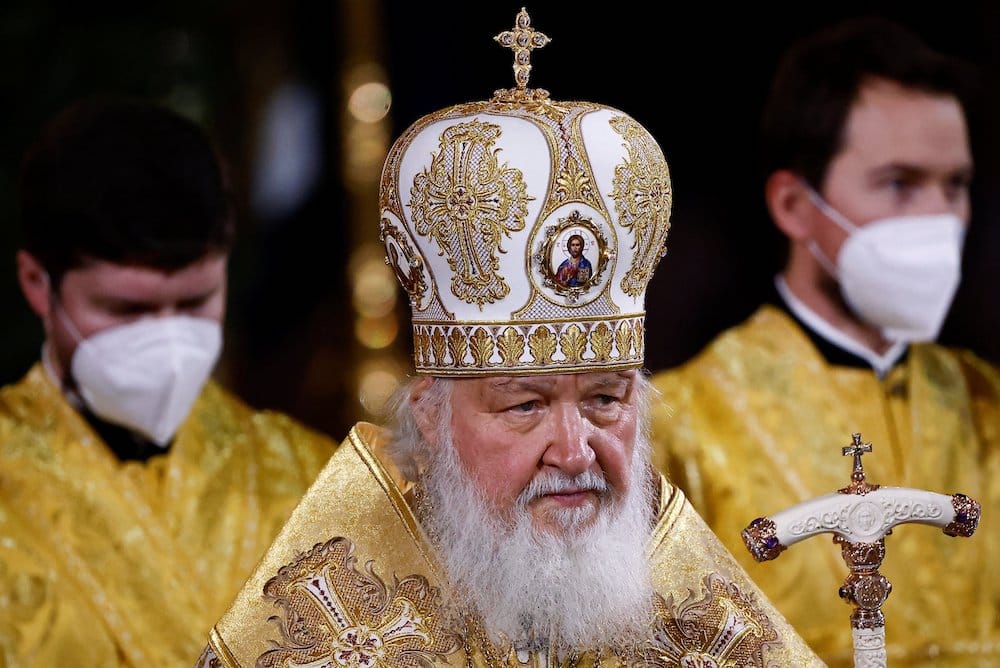
Cautioning Kirill
Pope Francis has cautioned Kirill on his support of the war. “The patriarch cannot transform himself into Putin’s altar boy,” the pope told an Italian newspaper shortly after the war began. Relationships between Rome and Moscow have been strained since the war’s outbreak.
The pope has repeatedly denounced the war. As recently as his January address to the Vatican diplomatic corps, Pope Francis said, “Sadly, after nearly two years of large-scale war waged by the Russian Federation against Ukraine, the greatly desired peace has not yet managed to take root in minds and hearts, despite the great numbers of victims and the massive destruction. One cannot allow the persistence of a conflict that continues to metastasize, to the detriment of millions of persons; it is necessary to put an end to the present tragedy through negotiations, in respect for international law.”
Attacks on religious freedom
In Russian-occupied areas of Ukraine, the Catholic Church has been declared illegal. Catholic priests are kidnapped and interrogated. Even humanitarian organizations like the Knights of Columbus — who have raised more than $20 million to provide aid to Ukrainians in need — are denounced as agents of the West.
As we move forward, the role of religious communities within Russia and Ukraine in shaping social and political landscapes will grow even more significant
According to the Ukrainian Greek Catholic Church (UGCC), religious freedom has been a particular target for Russia since the war began. Independent researchers have confirmed that more than 600 religious buildings (including churches, mosques and synagogues) have been destroyed. The head of the UGCC, His Beatitude Sviatoslav, recently stated that more than 50 priests of the UGCC have been abducted and tortured. Twenty-five of those priests are dead, while the whereabouts of the remaining priests are unknown.
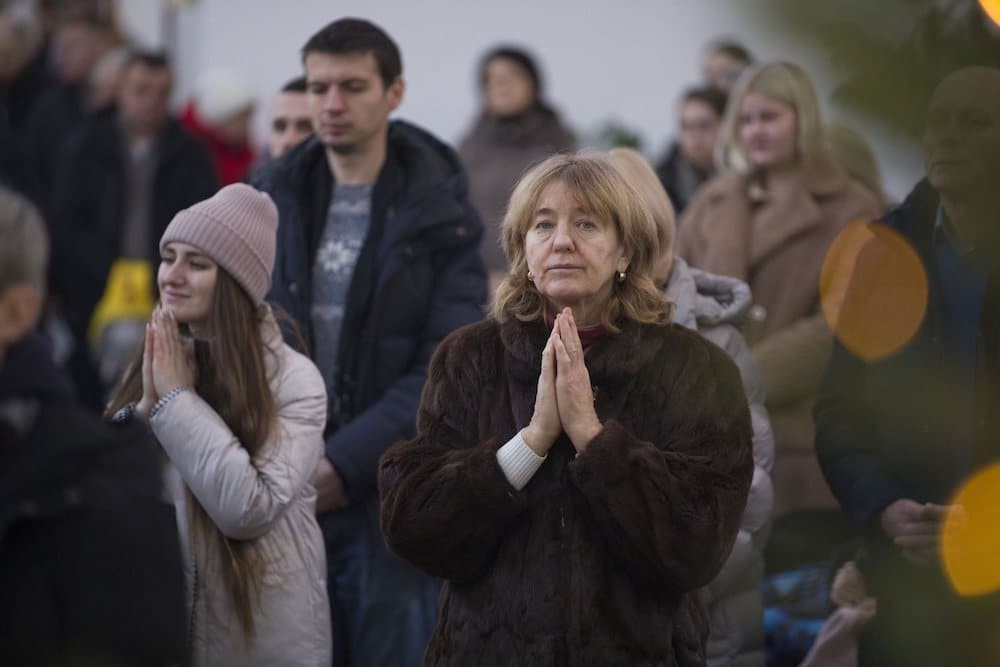
Potential for diplomacy
In seeking a resolution to the conflict, we must recognize the complex influence of religion on the situation. The potential of religious diplomacy and the power of informal faith-based dialogue networks, both national and international, alongside the impact of religious symbols and leaders, should not be underestimated. These elements might unlock solutions where traditional political and military strategies have fallen short.
As we move forward, the role of religious communities within Russia and Ukraine in shaping social and political landscapes will grow even more significant, and they have the capacity to model what an emerging peace could look like.
Religion, both as an organized entity and as a communal experience, has the capacity to escalate tensions or to pave the way for peaceful resolutions, emphasizing its importance in the broader strategy to address the conflict. Christians in the West must work for peace, confident that faithfulness to the truth and the Gospel will ultimately prove victorious.

